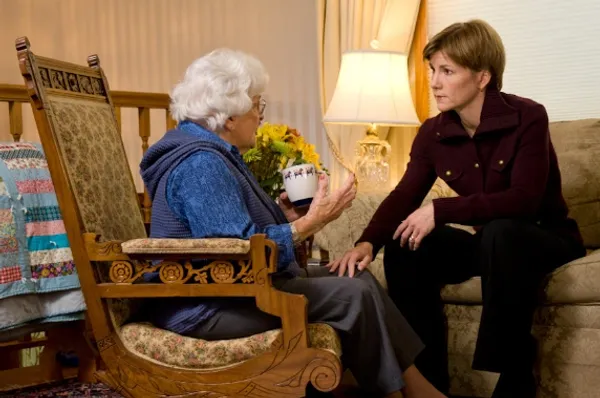at 612-315-3037 or
www.swansonhatch.com

The essence of this case is whether a guardian should get a court order before removing life sustaining equipment from a ward. Swanson believed that if the due process clause requires a court order before a home is searched, then due process should require a court order before the taking of someone’s life.
As Attorney General, Lori Swanson was a prolific and successful litigator. Of the 50 or so cases discussed in this website, this is the only decision that Attorney General Swanson lost. While Swanson was not a party to the proceeding, she believed the issue was of such significance that she filed an amicus curie brief with the Minnesota Court of Appeals which argued that a guardian should be required to file a petition with the court and get an order to disconnect life-support from a ward.
In April of 2008 Jeffrey Tschumy was placed under general guardianship. He was 53 years old, unmarried and without children. He suffered from mental health impairments, diabetes, effects of a stroke and partial paralysis from a spinal infection.
In April of 2012, Mr. Tschumy, living in a group home, suffered respiratory and cardiac arrest after choking on food. He suffered severe and irreversible brain injury and was deeply comatose. He was placed on a medical ventilator and provided medicine to lesson seizure activity and intravenous fluids.
A week later, Abbott Northwestern Hospital filed a motion to clarify the authority of the guardian and, if appropriate, amend the letters of guardianship to authorize the removal of Mr. Tschumy’s life support systems. The guardian stated that he had raised the issue with Mr. Tschumy before the cardiac arrest, but Mr. Tschumy replied that he didn’t want to talk about it. The guardian was unsuccessful in finding any relative or friend of Mr. Tschumy.
The district court issued an order appointing an attorney to represent Tschumy. The court then scheduled an evidentiary hearing to address two issues: (1) whether the medical power granted to a professional guardian permits the guardian to consent to life-support removal without court review or approval and (2) if court approval is necessary, whether Tschumy's life-support systems should be removed. At the hearing, the attorney representing Mr. Tschumy stated that he had reviewed Tschumy's medical records and an ethics-committee recommendation, had spoken to medical staff and the guardian, and visited Tschumy, who was unable to respond. Tschumy's counsel argued that, based on this information, including information on Tschumy's personal likes and dislikes, if Tschumy were able to communicate, he would wish to have life support removed and be allowed to die naturally.
A third party professional guardian testified that, absent a health care directive or other evidence, guardians have the right to make end-of-life decisions within the designated medical-consent power. On questioning by the district court, he agreed that some guardians may not be as careful as he in making those decisions and that there are a variety of reasonable views and opinions on end-of-life decisions. He testified that if he knew that a person or family believed that life was sacred and should be sustained if possible, even if medically futile, he would seek a decision from the court. He stated that he had proceeded in this manner on a few occasions when the family wanted to continue with life-support systems to keep the ward alive, but the hospital declined continued treatment.
The District Court concluded that the guardian should file a petition on the premise that a medical consent power does not include the power to disconnect a life support system. The matter was appealed to the Minnesota Court of Appeals.
Swanson filed a friend-of-the-court brief with the Minnesota Court of Appeals in support of the District Court decision, noting that end-of-life issues are unsettled and that the due process clause of the Constitution should mandate that a hearing before a judge take place before a guardian may remove life support. She referred to the testimony of the professional guardian who indicated that reasonable guardians may well differ on what criteria should be met in making the determination. She argued that the requirement of an evidentiary hearing before a judge would assure transparency and consistency in the criteria used to make such decisions. She also noted that such a hearing could be expedited to eliminate undue cost in making such decisions.
The Minnesota Court of Appeals disagreed. It reversed the District Court, stating that the statutory grant of medical consent power to a guardian, unless otherwise limited by court order, encompasses the authority to discontinue medical treatment for a permanently unconscious ward.
The court reasoned that the guardian statute grants a guardian "the power to give any necessary consent to enable the ward to receive necessary medical or other professional care." The court stated that "necessary" is defined as "unavoidably determined by prior conditions and circumstances." The American Heritage Dictionary of the English Language 1207 (3d ed.1996). The court then concluded that, when a ward's medical condition has deteriorated to the point where his doctors and a medical ethics committee have concurred that a return to consciousness is extremely unlikely, "necessary" medical care, or care that has been "unavoidably determined by prior conditions and circumstances," may include the disconnection of the ward's life-support systems.
With the coming advancement of health care in the future, Swanson believed that the courts and policymakers, not a private guardian, should develop the criteria for when an end-of-life decision should be made.
In re Guardianship of Tschumy,
834 N.W.2d 764 (2013)